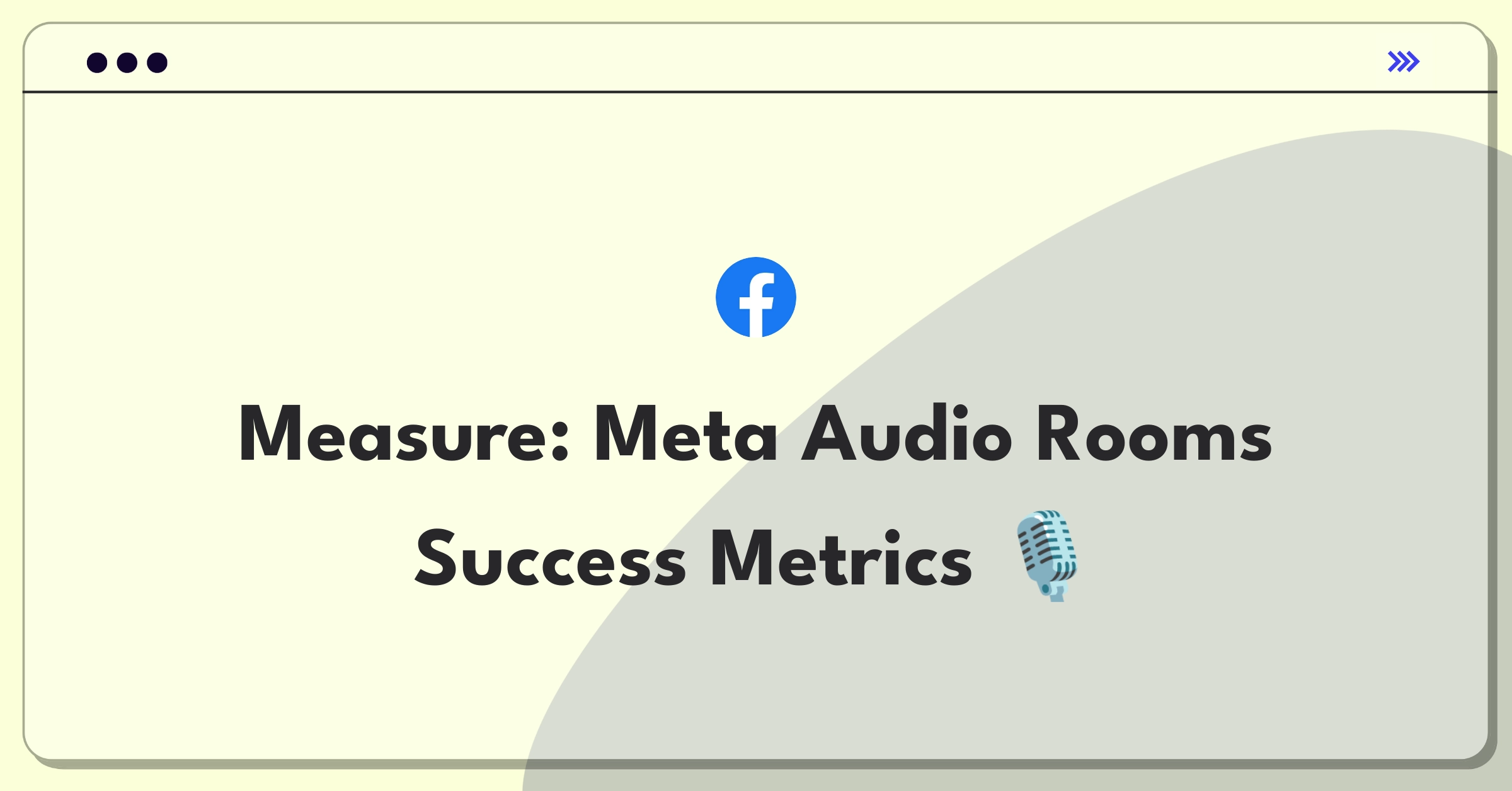Introduction
Setting goals for Meta's new Audio Rooms product requires a strategic approach to product success metrics. I'll follow a structured framework that covers core metrics, supporting indicators, and risk factors while considering all key stakeholders.
Framework Overview
I'll follow a simple success metrics framework covering product context, success metrics hierarchy.
Step 1
Product Context
Audio Rooms is Meta's foray into the live audio space, likely competing with platforms like Clubhouse and Twitter Spaces. It allows users to host and participate in live audio conversations within the Meta ecosystem.
Key stakeholders include:
- Users (hosts and listeners)
- Content creators
- Advertisers
- Meta's business units
User flow:
- Discovery: Users find rooms through their feed, notifications, or search
- Joining: Users enter rooms as listeners
- Participation: Listeners can raise hands to speak, hosts manage speakers
- Engagement: Users interact through reactions, follows, and shares
This product aligns with Meta's strategy to increase user engagement and time spent on platform. It also supports their creator-focused initiatives by providing new monetization opportunities.
Compared to competitors, Audio Rooms benefits from Meta's massive user base and existing social graph, potentially offering better discovery and integration with other Meta products.
Product Lifecycle Stage: Early growth. Audio Rooms is likely past initial launch but still evolving rapidly based on user feedback and usage patterns.
Subscribe to access the full answer
Monthly Plan
The perfect plan for PMs who are in the final leg of their interview preparation
$66.00 /month
- Access to 8,000+ PM Questions
- 10 AI resume reviews credits
- Access to company guides
- Basic email support
- Access to community Q&A
Yearly Plan
The ultimate plan for aspiring PMs, SPMs and those preparing for big-tech
- Everything in monthly plan
- Priority queue for AI resume review
- Monthly/Weekly newsletters
- Access to premium features
- Priority response to requested question


.png)